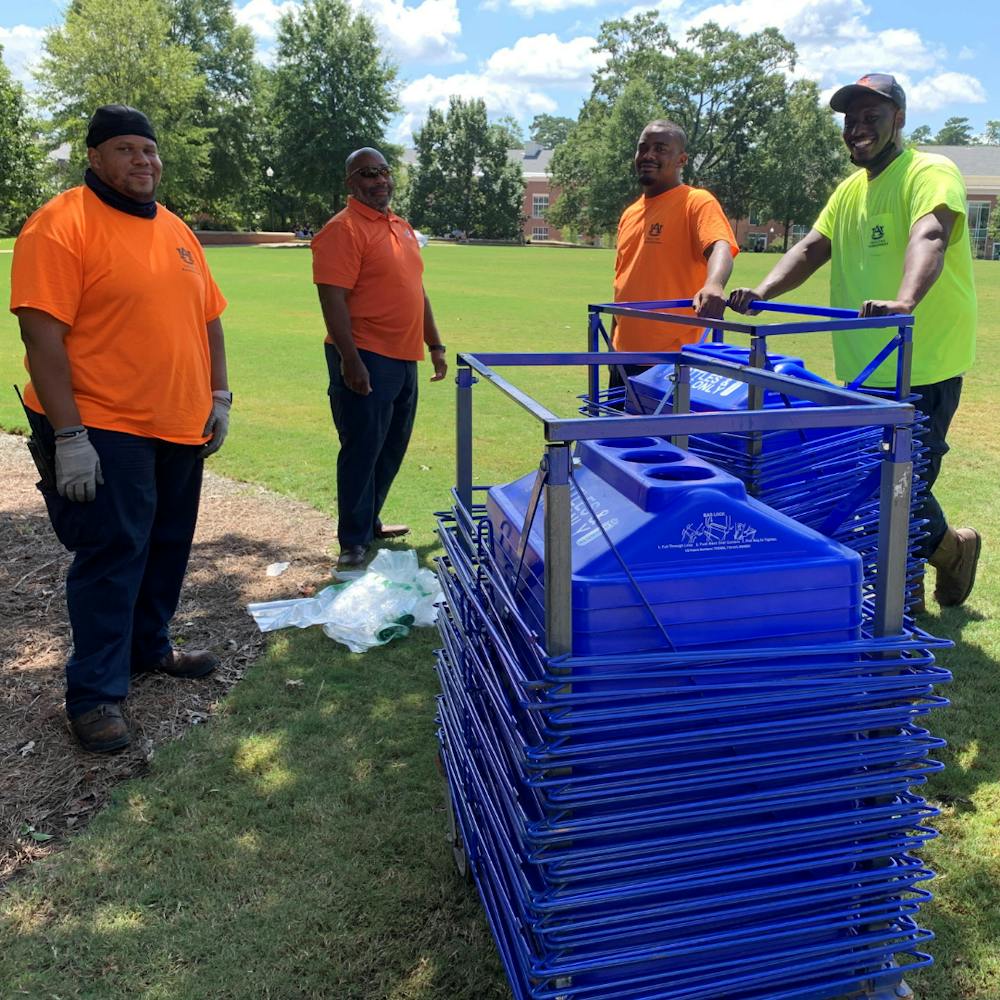At each home Auburn University football game, one person or tailgate is “caught recycling” and receives a football signed by Auburn football head coach Bryan Harsin.
The “Get Caught Recycling” program, a partnership between Auburn Athletics and the Waste Reduction and Recycling Department, gives Auburn students the opportunity to increase recycling, minimize litter and reduce the amount of trash going to the landfill. The program began at Auburn University in 2005.
“Game day recycling is an opportunity for the University to demonstrate to the campus community that recycling and waste reduction activities are not limited to the home,” said Joan Hicken, manager of Waste Reduction and Recycling.
Auburn University’s recycling program is part of the University’s institutional commitment that serves Auburn’s mission as a land grant institution to improve the lives of the people of Alabama and beyond.
“Volunteers make our campus a better place, and volunteering can help students grow in their learning," Hicken said. "Through service, students practice important skills like leadership, problem-solving and time-management."
During the 2019 football season, Auburn University produced an average of 47 tons of waste and recycled 4.5 tons of plastic bottles, aluminum cans and cardboard per game. In an effort to encourage fans to recycle more, the Waste Reduction & Recycling Department staff placed over 500 recycling bins inside Jordan-Hare Stadium and around campus for fans to recycle their plastic bottles and aluminum cans.
In the 2021 fiscal year, Auburn University recycled 396 tons of cardboard, 174 tons of paper, 46 tons of scrap metal and 29 tons of mixed containers made of plastic, aluminum and steel. The diversion rate, or the amount of waste that is diverted from landfills for recycling, was 18% for the year.
Auburn University considers sustainability a core value and strives for excellence in sustainability through continuous assessment and improvement according to the University’s Sustainability Policy, Hicken said.
“Sustainability in sports helps connect the University to its students, staff, faculty, alumni, fans, supporters and visitors with a shared commitment to the principal aspects of sustainability: social, economic and environmental,” Hicken said.
Other ways to make game days more sustainable are to choose reusable tailgate supplies and ride Tiger Transit or carpool with others to the game. Additionally, attendees can clean up tailgate areas after the game, recycle plastic bottles and aluminum cans, bring a reusable water bottle to the game and use refill stations in the stadium, Hicken said.
Auburn's "Get Caught Recycling" program is part of a growing movement to make collegiate sports more sustainable. Several universities, such as Ohio State University and the University of Colorado Boulder, have met "zero waste" goals for sporting events, diverting as much as 87% of all waste to recycling throughout the season.
Do you like this story? The Plainsman doesn't accept money from tuition or student fees, and we don't charge a subscription fee. But you can donate to support The Plainsman.
Catherine Haynes, junior in journalism, is the opinion editor for the Auburn Plainsman.






